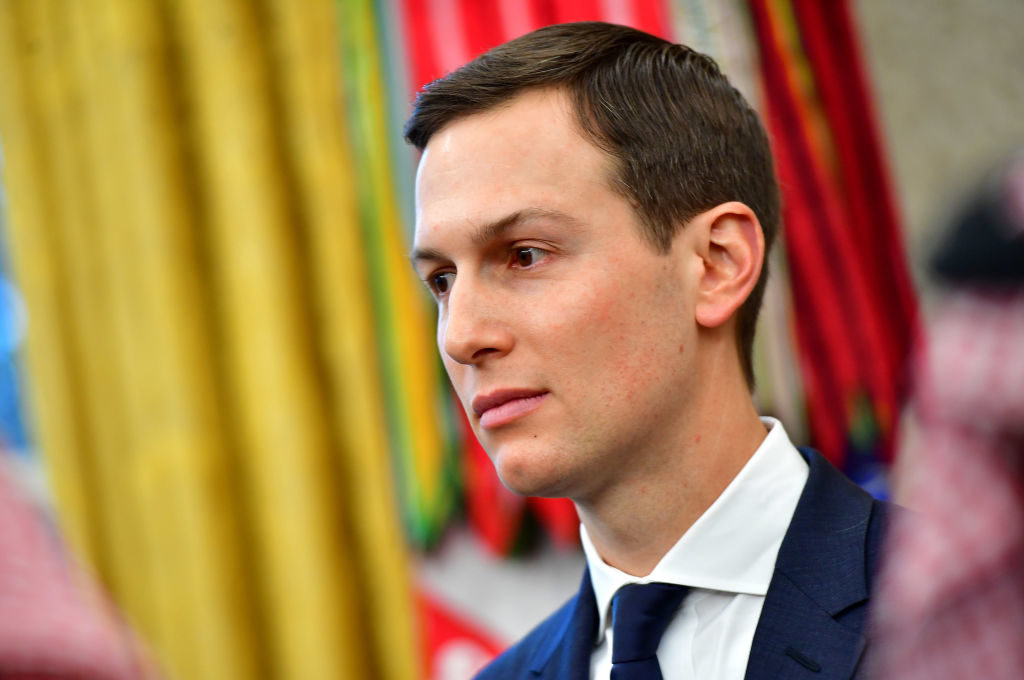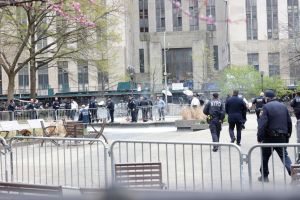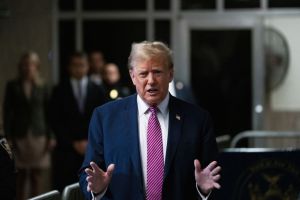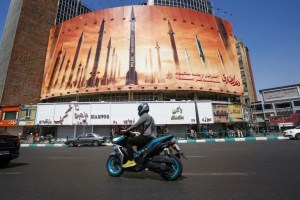These are dangerous times for the Saudi crown prince, Mohammed bin Salman, and perhaps for Jared Kushner too. The Biden administration has released an intelligence report accusing MbS of ordering the killing of the Saudi dissident journalist Jamal Khashoggi in 2018. What does President Trump’s son-in-law have to do with this?
Kushner went to Saudi Arabia in October 2017, staying up until 4 a.m. to ‘swap stories and plan strategy’ with MbS, as the Washington Post reported at the time. The following month, MbS began a crackdown, arresting and torturing enemies who included some of the richest and most powerful men in the Kingdom. Meanwhile, dissidents abroad were persuaded to come home, or — in some cases — simply kidnapped. Khashoggi was said to have rebuffed one such invitation to return to the Kingdom. How much did MbS reveal to Kushner of what he planned? Last summer, an official who works with Kushner told me the idea that Kushner gave MbS any kind of green light was ‘nonsense’.
But Kushner and MbS were certainly close, princes in their respective houses. The Spectator has reported allegations about sensitive information requested by Kushner from the CIA in security briefings being echoed back in US monitoring of calls between members of the Saudi royal family weeks later. One US media report — in the Intercept — said that MbS had bragged that Kushner was ‘in his pocket’ and passing him the US intelligence community’s secrets. Again, the White House official poured scorn on all these stories: if Kushner had been leaking secrets, a spokesman told me at the time, he would have been prosecuted.
According to the newly declassified report, the US intelligence community has concluded ‘with a medium to high degree of certainty’ that MbS himself gave the order to murder Khashoggi. In fairness, the report does not say that Kushner or Trump had any hint of the plan to murder Khashoggi. MbS’s culpability is based, the report, says, on the ‘absolute control’ the crown prince had over the security and intelligence apparatus in the Kingdom and the (alleged) involvement in the killing of some of his most senior and trusted aides.
One of the ringleaders was allegedly a man named Saud al-Qahtani. He is a former journalist whose official title was supervisor of the centre for media affairs at the royal court. The crown prince’s media adviser was, then, accused of being responsible for an operation that saw Khashoggi dismembered in the conference room of the Saudi consulate in Istanbul and his body dissolved in an acid bath. Al-Qahtani was also accused of torturing a female Saudi dissident, Loujain al-Hathloul. Her family told me he said to her: ‘I’m going to kill you. But first I’ll rape you. If I wanted to, I could cut your body into pieces and throw you into the sewer. No one would know what happened to you.’
Khaghoggi’s murder, the abuse of other dissidents, and the war in Yemen, all led Joe Biden to say during the campaign that Saudi Arabia had become a ‘pariah’ state. Biden used the second anniversary of Khashoggi’s death to declare that he would ‘reassess’ the US-Saudi relationship. ‘Jamal’s death will not be in vain.’ Such statements apparently reflect Biden’s disgust with MbS, a ‘thug’ in his view. They could be made because the fundamentals of the US-Saudi relationship have changed as a result of the long-term decline in US oil imports from Saudi Arabia. The Saudis can no longer choke the US economy.
The contents of the intelligence report were, already, largely known — its public release shows that Biden is intent on keeping his campaign promise not to go back to business as usual with Saudi Arabia. It’s an unmistakably clear signal that Saudi Arabia can expect a difficult time from the US as long as MbS is running things. Some of the crown prince’s rivals may be receiving that message loud and clear. In 2018, I heard a report that MbS had narrowly escaped an assassination attempt by a drone packed with explosives. He disappeared from public view for several months while supposedly recovering from his injuries. Now, a former CIA Middle East analyst, Bruce Riedel, says there may have been as many as three attempts to assassinate MbS.
Riedel was quoted in this well-researched piece on whether the US might back a palace coup to remove MbS: a former director of national intelligence, James Clapper, says in the same piece that the US government would almost certainly talk to any rivals for the throne who had a well thought out plan to seize power — though whether the US end up supporting such a plan was another matter. ‘If the intent is some form of regime change, that is a very heavy policy call, and policy-makers should deliberate this very carefully and thoughtfully to include contingency off-ramps if things go wrong.’
Short of a coup in Riyadh, it’s hard to see King Salman replacing his heir and favorite son. This means continued scrutiny of Kushner’s — and Trump’s — relationship with the crown prince. At the time of Khashoggi’s murder, President Trump said he didn’t much care whether MbS had known what was happening. ‘Maybe he did and maybe he didn’t!’ That was one of the more extraordinary statements put out in Trump’s name during his time in the Oval Office. The nagging question remains: why was the Trump administration so keen to protect MbS?


















